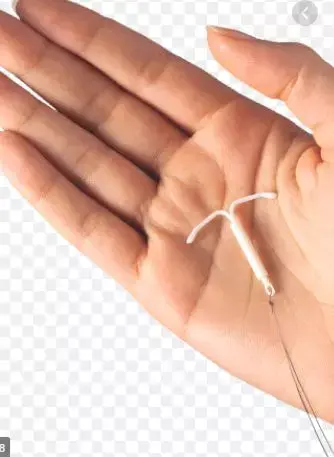- Home
- Medical news & Guidelines
- Anesthesiology
- Cardiology and CTVS
- Critical Care
- Dentistry
- Dermatology
- Diabetes and Endocrinology
- ENT
- Gastroenterology
- Medicine
- Nephrology
- Neurology
- Obstretics-Gynaecology
- Oncology
- Ophthalmology
- Orthopaedics
- Pediatrics-Neonatology
- Psychiatry
- Pulmonology
- Radiology
- Surgery
- Urology
- Laboratory Medicine
- Diet
- Nursing
- Paramedical
- Physiotherapy
- Health news
- Fact Check
- Bone Health Fact Check
- Brain Health Fact Check
- Cancer Related Fact Check
- Child Care Fact Check
- Dental and oral health fact check
- Diabetes and metabolic health fact check
- Diet and Nutrition Fact Check
- Eye and ENT Care Fact Check
- Fitness fact check
- Gut health fact check
- Heart health fact check
- Kidney health fact check
- Medical education fact check
- Men's health fact check
- Respiratory fact check
- Skin and hair care fact check
- Vaccine and Immunization fact check
- Women's health fact check
- AYUSH
- State News
- Andaman and Nicobar Islands
- Andhra Pradesh
- Arunachal Pradesh
- Assam
- Bihar
- Chandigarh
- Chattisgarh
- Dadra and Nagar Haveli
- Daman and Diu
- Delhi
- Goa
- Gujarat
- Haryana
- Himachal Pradesh
- Jammu & Kashmir
- Jharkhand
- Karnataka
- Kerala
- Ladakh
- Lakshadweep
- Madhya Pradesh
- Maharashtra
- Manipur
- Meghalaya
- Mizoram
- Nagaland
- Odisha
- Puducherry
- Punjab
- Rajasthan
- Sikkim
- Tamil Nadu
- Telangana
- Tripura
- Uttar Pradesh
- Uttrakhand
- West Bengal
- Medical Education
- Industry
FDA extends use of intrauterine contraceptive device Mirena up to 6 years

Use of Mirena (levonorgestrel-releasing intrauterine system; Bayer), has been extended up to 6 years for pregnancy prevention as compared to the previous indication of only 5 years by the US food and drug administration. The approval is based on the phase 3 Mirena Extension Trial reports.
The Food and Drug Administration (FDA) approved the supplemental New Drug Application (sNDA).
Mirena is a hormonal intrauterine device classified as a long-acting reversible contraceptive method. T-shaped polyethylene frame (T-body) with a steroid reservoir (hormone elastomer core) made of a mixture of levonorgestrel and silicone (polydimethylsiloxane), containing a total of 52 mg levonorgestrel around the vertical stem.
The device releases the hormone at an initial rate of 20 μg/day and declines to a rate of 14 μg after 5 years. This rate decreases progressively to approximately 10mcg/day after 5 years and 9mcg/day after 6 years. By the end of the 6th year, Mirena should be removed and replaced at the time of removal with a new system if continued use is desired. Most of the hormone stays inside the uterus, and only a small amount is absorbed into the rest of the body.
The Extension Trial study was performed to assess if Mirena is effective and safe as a birth control method beyond 5 years of use. Further, the menstrual blood loss (in women that had Mirena inserted for the indication of heavy menstrual bleeding [HMB]) and safety were also assessed.
The study design consisted of 362 women aged 18 to 35 years who had been using Mirena for not less than 4.5 years and no more than 5 years at enrollment. The primary endpoint was the pregnancy rate calculated as the Pearl Index (PI) at the end of year 6. Women, 18 to 35 years of age at the time of screening (visit 1) who are currently using Mirena for contraception or contraception and heavy menstrual bleeding. the women were willing to continue with its use and have a continuing need for contraception.
On data analysis, researchers have revealed that the PI for the 6th year of use was 0.35 with a 95% upper confidence limit of 1.95 based on the 1 pregnancy that occurred during year 6 and within 7 days after Mirena removal or expulsion.
As the Mirena Extension Trial is still ongoing, no further details have been updated till now.
Primary source: mirena-us.com.
For details click on the link: Mirena [package insert]. Whippany, NJ: Bayer HealthCare Pharmaceuticals; 2020.
Dr Satabdi Saha (BDS, MDS) is a practicing pediatric dentist with a keen interest in new medical researches and updates. She has completed her BDS from North Bengal Dental College ,Darjeeling. Then she went on to secure an ALL INDIA NEET PG rank and completed her MDS from the first dental college in the country – Dr R. Ahmed Dental College and Hospital. She is currently attached to The Marwari Relief Society Hospital as a consultant along with private practice of 2 years. She has published scientific papers in national and international journals. Her strong passion of sharing knowledge with the medical fraternity has motivated her to be a part of Medical Dialogues.
Dr Kamal Kant Kohli-MBBS, DTCD- a chest specialist with more than 30 years of practice and a flair for writing clinical articles, Dr Kamal Kant Kohli joined Medical Dialogues as a Chief Editor of Medical News. Besides writing articles, as an editor, he proofreads and verifies all the medical content published on Medical Dialogues including those coming from journals, studies,medical conferences,guidelines etc. Email: drkohli@medicaldialogues.in. Contact no. 011-43720751


